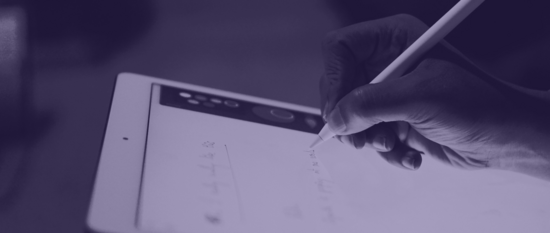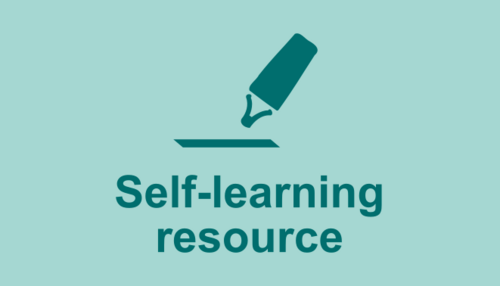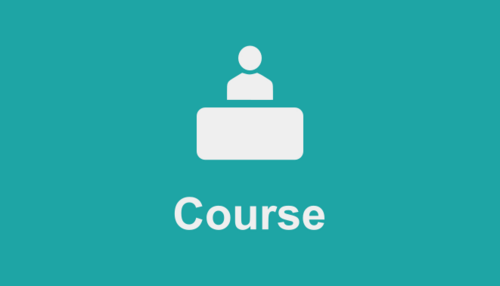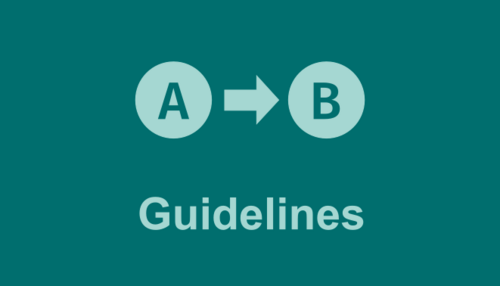
Information resourcesLearning and teaching
Literacy in learning means knowing the appropriate tools and techniques to learn in digitally-rich settings, and understanding the opportunities and challenges that this activity entails.
Literacy in teaching means having an understanding of the educational value of different digital media for teaching, learning and assessment. It also means knowing about different educational approaches and their application in digitally-rich settings.
Learn more about these competencies
- Instructions on how to use this page can be found on the entry page.
- To send feedback or suggestions and to report problems, write to digital-literacies@clutterunibas.ch.
Resources at the University of Basel

UPGRADE your digital skills
The University of Basel offers a comprehensive introduction to its digital infrastructure and to essential digital skills in its self-learning resource UPGRADE your digital skills. The course’s target audience are all new students at the University of Basel.

AI in higher education
To discover this topic, university members can follow Dr. Ulrike Hanke's online introductory course, which is available on ADAM. Use this webpage to register for the course. Also available is a course on Assessments in a world with AI (German only).

Open Educational Resources
Open Educational Resources (OER) are openly licensed learning materials that can be used freely. This website and PDF brochure explain concretely how teachers and lecturers can use OER in their own teaching.

Study skills at PhD level
The program Transferable Skills offers doctoral students many opportunities to expand their knowledge and skills in the area of digital learning. Topics covered include writing, reading, and presentation skills, project management, or research and publication strategies.

Development of teaching skills
The Team Educational Development supports and strengthens the deployment of modern university teaching in Basel, in conformity with international standards. The offer includes the Higher Education Certificate Supporting Learning,a number of workshops and courses on many topics including online teaching, supervision or examination, as well as a Knowledge Hub with a selection of didactic materials (intranet, VPN required).

Courses on digital teaching
The University of Basel has a rich offer for the strengthening of digital teaching skills, including regular courses about ADAM and on topics such as blended learning, flipped classroom, learning activities or Open Educational Resources.

Blended Learning
In their self-study course Blended Learning: Umsetzungsmöglichkeiten an der Universität Basel (in German only), the team Educational Technologies offers a comprehensive guide on how courses with both synchronous and asynchronous phases can be implemented at the University of Basel.

Checklists for online teaching
The University of Basel offers lecturers checklists in PDF format that they can use to ensure that their digital courses meet all relevant criteria. The topics are online teaching in general, online exams and flipped classroom. (In German.)

Accessible online teaching
Accessibility in digital teaching and learning offers step-by-step guidance for creating accessible documents, videos and audios. It also shows how video conferences/online seminars can be made accessible.
![[Translate to English:] Tool](https://digitalskills.unibas.ch/fileadmin/_processed_/3/6/csm_tool5-ico_a411301303.png)
Learning-Management-System
ADAM is the learning management system of the University of Basel. Very good instructions and practical recommendations for using the platform are available on the ADAM help pages.
Further internet resources

Ressources for e-teaching
e-teaching.org is a high-quality German-language resource that covers all aspects of digital teaching. It features howtos, guides, descriptions of best practices, definitions, and links to further resources. (In German.)

Teaching Tools
The University of Zürich provides a variety of short tutorials to help instructors strengthen their digital teaching skills.
![[Translate to English:] Anleitung](https://digitalskills.unibas.ch/fileadmin/_processed_/c/7/csm_anlt5-ico_2167ea62a2.png)
Skills for the digital future
With its program Skills for the (Digital) Future (in German), the University of Bern provides excellent short inputs on key digital competencies. The resources are accessible to any person with a Switch edu-ID.

How to learn with video
Excellent advice on how to deal with classes in hybrid formats (in-class and video), can be found in the article by Emily Nordmann et. al. Lecture capture: Practical recommendations for students and lecturers. This document is accompanied by a very good flyer with useful practical tips for students.
Continue to the next literacy area: Information resources for Identity, safety and well-being
